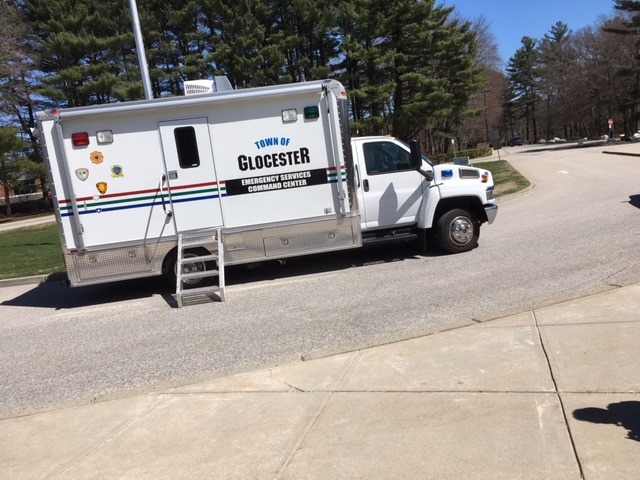GLOCESTER – With the threat of hurricane season looming, including a possible hit from Hurricane Lee, Glocester Emergency Management Director Gerard “Gerry” Mosca is concerned about whether residents are prepared for a disaster.
“My biggest concern is that New Englanders have been put in a false sense of security because we have been very lucky not having as many major disasters as the rest of the country,” he said. “This leads to a lack of preparedness and assuming it will never happen here. I believe the risk is greater now than in the past due to the unusually warm waters and changing weather patterns.”
At a recent Town Council meeting, Mosca explained that it could be only a matter of time, given recent weather patterns and disasters. The threat is real, he warned.
“If even a category one hurricane comes up the Connecticut River and hits northern RI, this area will be without power for at least a month,” he told the council.

Every person should be prepared to be on their own for at least 72 hours, he added.
To help ensure that Glocester is ready for what may come, a planned exercise with the Federal Emergency Management Agency and the Rhode Island Emergency Management Agency was scheduled to take place on Saturday, Sept. 16, behind the Town Hall. Glocester is one of only four communities picked for the exercise. Ironically, because of the threat of Hurricane Lee, the event was cancelled and will be rescheduled for a later date. The event, said Mosca, is an important part of being prepared for all possibilities.
“This is called a ‘Commodity Point of Distribution’ or ‘C-POD,'” he explained. “Glocester was fortunate enough to be asked to participate in this exercise where Emergency Management personnel and volunteers will set up and distribute two pallets of water and MRI to people who will be acting as disaster survivors. All personnel involved are training in the event of a real disaster.”
He explained that included participants playing the roles of politicians trying to interfere, and residents trying to leverage favors, all of which happens in real disasters. He expects participants to come through the supply line and give people a hard time. To make it even more realistic, the actual time at which personnel will arrive was not included in the planned exercise.
“I’ve seen it in real life,” said Mosca. “In the real world it might be the next day. It might be two days. It could even be three days.”
Mosca added every community has plans to distribute food, water and other supplies to residents. Glocester is fortunate enough to have a good core of EMA volunteers, first responders and town employees who have been training to assist their neighbors by operating C-PODs and shelters should the need arise. He recommended that residents get involved in local emergency volunteer groups, the Red Cross or local non-profit or faith-based organizations which assist during emergencies, adding that the training received could help them not only save neighbors, but their own families as well.
History provides a warning of what may come. Mosca recalled what happened in the past with Super Storm Sandy in October of 2012, which was not even designated as a hurricane. Some parts of Connecticut were without power for three or more weeks, shutting down wells, markets, gas stations and restaurants. Glocester lost power for six days.
“All residents of cities and towns which rely on wells for water should be concerned about the possibility of a hurricane landfall in Connecticut or Rhode Island by a category one or two hurricane which will result in periods of power outages which may extend for weeks,” he warned.

Though the warnings are dire, Mosca is optimistic that northern RI citizens are up to the task at hand, should disaster occur.
“I think that the residents of northwest RI are resilient and are somewhat used to power outages that last a few days,” he said.
But, he added, people need to be even more prepared than they have been in the past.
“I think we need to work to get everyone prepared for possible extended outages and supply shortages,” said Mosca. “We should not expect immediate assistance during a disaster which may have also affected the states around Rhode Island and the roads we need to bring in supplies.”
Mosca suggested that in order to be ready residents should have access to generators or have a plan to stay with someone with a generator and have supplies on hand such as water, nonperishable food, medicines and more, to last three to seven days. There are disaster preparedness plans and tips on the Glocester EMA website: https://www.glocesterri.gov/emergency-management.htm and on the RI EMA website: https://riema.ri.gov/planning-mitigation/resources-rhode-island-citizens.








Fire/Police Departments should be able to provide emergency food and water as needed to the most vulnerable of our town in any emergency. After all, we have too much money from the recent tax increase last year – (look at the budget, for those who can read it) BEFORE it is spent on useless make work projects. Glocester needs to stock up on emergency supplies for the citizens FIRST, before all else.